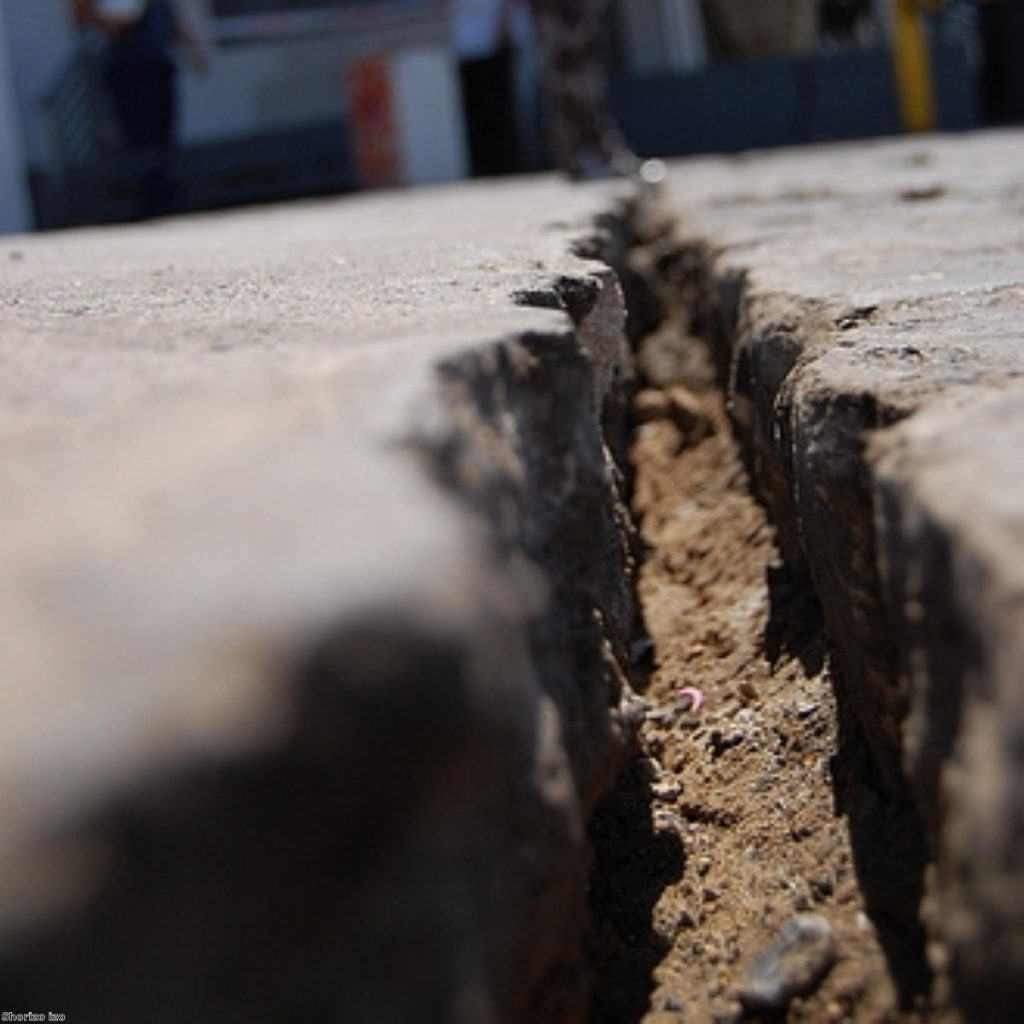Foreign Office ‘not overstretched’ by dual Libya-Japan crisis
By Ian Dunt
The Foreign Office is able to deal with the twin crises in Libya and Japan, the foreign secretary has insisted.
Questions were raised about the government’s ability to manage the two issues after a specially convened Cobra meeting this morning in Whitehall.
British embassies and consulates went on high alert as a massive earthquake hit Japan and threatened tsunamis across the Pacific Basin.


Meanwhile, David Cameron was putting himself at the front of international efforts to find a solution to events in Libya, after he signed a joint ultimatum with France threatening tougher action unless the regime stopped killing civilians.
Foreign secretary William Hague, who has been under pressure over his response to the Libyan uprising, insisted that the Foreign Office had not been overstretched by trying to deal with the global disaster while simultaneously managing events in the Middle East and north Africa.
“It does stretch our resources but that’s why we coordinate across government,” he said.
“The Foreign and Commonwealth Office and the Department for International Development are in the lead and we’ll make sure the necessary resources are there.”
The 8.9 magnitude quake struck at a depth of six miles about 80 miles off the eastern coast, according to Japan’s meteorological agency.
Hundreds of people are thought to have been killed in the disaster.
The British Geological Survey said the quake was the sixth largest since records began.
There are grave concerns about the effect of the ensuing tsunami on less developed countries such as Indonesia, which was devastated by a similar event in 2004.
Countries across north and South America also issued tsunami alerts as warning systems across the region were initiated.
But the waves which hit Hawaii, the Philippines and Papua new Guinea were much less severe than expected.
“This is of huge dimensions by any standards,” Mr Hague admitted.
“We are in contact with the Japanese government and I have asked our ambassador in Tokyo to offer all assistance we can as Japan responds to this terrible disaster.
“We are also working urgently to provide consular assistance to British nationals. Our embassy and consulates-general across Japan are in touch with local authorities and making contact with British nationals to provide consular assistance.
“We have set up a crisis centre in the Foreign Office to co-ordinate our response and offer advice to anyone concerned about relatives or friends in Japan. We are not aware of any British casualties at this time.”
Rapid deployment teams are now ready to travel immediately to “areas of most need”, the foreign secretary said.
Mr Hague “expressed his deep sympathy for the loss of life” to the Japanese foreign minister this afternoon.
Prime minister David Cameron also expressed his concern after arriving at the emergency EU summit in Brussels this morning.
“We send our sympathies and condolences to the Japanese people,” he said.
“We’ve had a terrible reminder of the destructive power of nature and everyone should be thinking of that country and its people and I’ve asked immediately that our government should look at what we can do to help.”
People in UK worried about family or friends in the country are being urged to call the official helpline on 020 7008 0000.
A Google ‘person finder’ application has been launched to help people get in contact with each other. It can be accessed here.
British nationals in Japan have been told to make contact with the British Embassy in Tokyo on +(81) 3 5211 1100 or the Consulate-General in Osaka +(81) 6 6120 5600 and monitor local TV and radio for evacuation information.
Radio stations in the Tokyo area that have emergency information in English include the US Armed Forces station at 810AM and InterFM (76.1FM).
Britons are being urged to check their immediate surroundings for fire, gas leaks, broken glass and other hazards, and open doors and windows to avoid being locked in if there are after-shocks.
“British Nationals at evacuation sites should cooperate with the Japanese authorities and clearly identify themselves as British,” Mr Hague said.
“Those connected with larger organisations such as companies, schools or church groups should also try to let these organisations know of their situation if possible.”
The Queen extended “heartfelt sympathy” to the Emperor of Japan and all those affected by earthquake.
Fires have been reported at over 80 locations in the country, including an oil refinery in Ichihara, near Tokyo, where huge balls of flame reached into the sky after natural gas storage tanks were set ablaze.
Japan declared a nuclear emergency after attempts to cool off a reactor in Fukushima failed. People within two kilometres of the plant have been told to evacuate.
There were also reports of a fire at the Onagawa nuclear power plant, although this was later extinguished.
Russia, Papua New Guinea, Australia, New Zealand, Fiji, Mexico, Guatemala, El Salvador, Costa Rica, Nicaragua, Panama, Honduras, Chile, Ecuador, Colombia and Peru all issued warnings of a possible tsunami following the quake.

